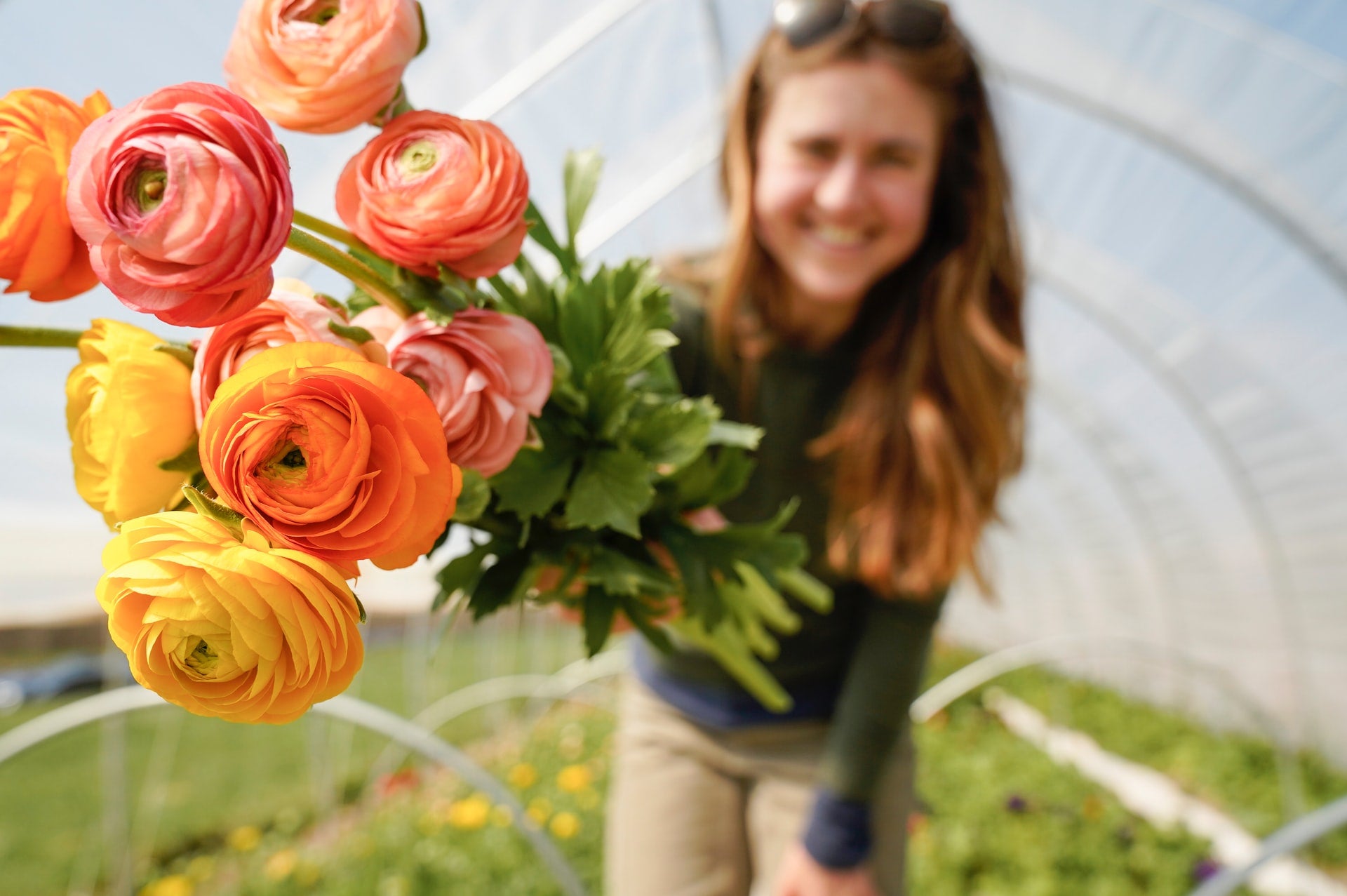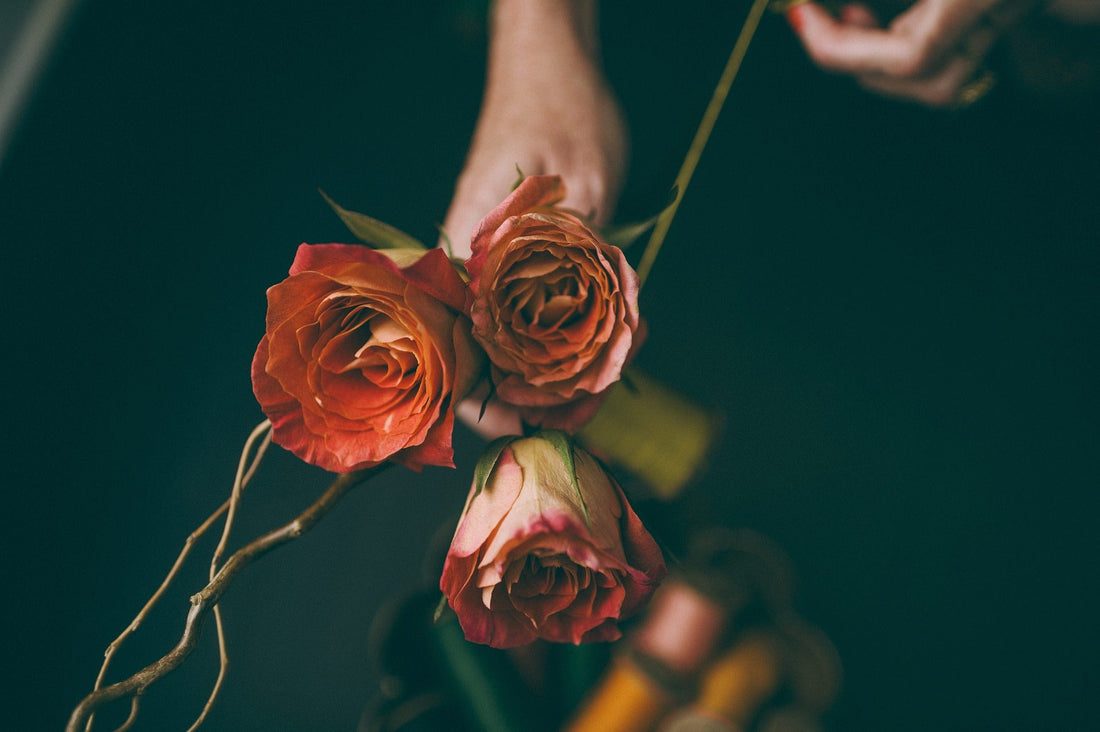Especially during the winter months, when the weather outside is gray, a bouquet of flowers is a bright splash of color in the home and office. A sustainable bouquet of flowers is also a welcome gift, especially on the classic "gift dates" when Valentine's Day and later Mother's Day are just around the corner.

Where do the flowers come from - and what is a sustainable bouquet?
A closer look at the origin of our cut flowers shows that many of them have come a long way before they are on sale at the market or at the florist. By far the most popular cut flower, the rose, comes predominantly from the Netherlands - but not only. Almost 30% of the roses sold come from Zambia, 25% from Ethiopia, more than 7% even from Ecuador.
The problems:
- Working conditions
- Environmental impact
- Long air transports

While European labor and occupational safety conditions prevail in the Netherlands, this cannot be transferred to Africa or South America. Supply chain laws that enforce tracking of working conditions are still quite sketchy - so who knows under what conditions a worker in Ecuador or Zambia is engaged in growing the flowers?

A sustainable bouquet must be local
Working hours and wages, but also the use of pesticides and herbicides, are hardly controllable from a European perspective. The bright red roses that we carry home beaming with joy often come at a high price. But others pay the price. The environmental balance of long-distance flowers is not impressive in other respects either. Of course, they are transported by air and refrigerated so that they arrive "dewy". This again increases the CO2 footprint of the flowers quite considerably. Thus, the cut flower from overseas can be poorly used for a sustainable bouquet.

Alternatives to make it work with the sustainable bouquet
Flower cultivation in emerging countries cannot be condemned wholesale; after all, it creates jobs and prospects. Nevertheless, the question remains: How can you buy sustainable bouquets if you don't want to do without cut flowers?
- Sustainable bouquet: Fairtrade flowers
Organized Fairtrade is now also available for cut flowers - in this case, the flowers come from farms that have their conditions certified. This concerns both the sustainable treatment of the environment and the conditions of the workersThe farmers must be paid fair wages, have the right to organize themselves into a union, and have clear employment conditions.

- Sustainable bouquet: organic flowers
Cut flowers that meet the same requirements as organic fruit or vegetables from certified organic cultivation may be called organic flowers. Among other things, this means that no chemical toxins or artificial fertilizers are used. As if that were not enough, there is a great diversity of species on some flower farms, so that a wide variety of insects can get a taste of them.

- Sustainable bouquet: Slow Flowers
Another sustainability concept is copied from Slow Food. Similar to food, the flowers as Slow Flowers should be as regional and seasonal as possible. possible. If flower cultivation is not possible in Switzerland in winter, the traders cooperate with flower growers from Ticino - or from Liguria, whose coast is famous as the "Flower Riviera" because of its numerous greenhouses.

- Sustainable bouquet: bouquetsby season
Of course, with a little skill, you can create your own bouquets, using meadow flowers or flowers from your own garden in spring and summer. In autumn, it's the turn of branches with brightly colored foliage, and if nothing else blooms in winter, there are immer greenery such as fir branches or hollywhich can be decorated for Christmas from November and stay fresh in the vase for a long time. If you want to have a little color in the living room during the cold season, you can dry the most beautiful summer flowers in time - hang upside down in a cool place without direct sunlight and wait a few weeks!

Cut flowers can be sustainable!
With a little thought, you don't have to have a guilty conscience when reaching for a colorful bouquet of flowers. However, it requires a little thought - about the origin of the flowers and cherished consumption habits that can easily be changed a little. Because with organic flowers or Slow Flowers, the magnificent bouquet for Valentine's Day or Mother's Day is no reason for a guilty conscience!




















